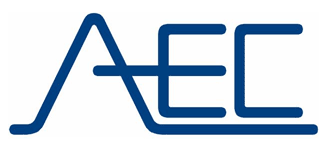Hearing loss is a serious concern for many. Whether you have encountered high levels of noise at work, at concerts or in any other capacity, high noise levels and the associated potential hearing loss does not discriminate. Like trying to recycle more, or eat less takeaway meals, we all know we should take better care to preserve our hearing and for those living with hearing loss, the physical and psychological effects can be great. However current developments in hearing aids and signal processing is giving hope to those affected.
The IOA North West Branch presented ‘Hearing loss and how it is corrected & Sound Processing and Perception’ at the Samuel Alexander Building, Manchester on Wednesday 11 December 2019. Organised by Dave Terry (AEC) and the University of Manchester, it featured the two highly renowned speakers Professor Harvey Dillon and Doctor Michael Stone presenting fascinating insights into their research and work in the understanding of hearing loss, intelligibility and towards the development of hearing aid technologies.
Professor Harvey Dillon discussed topics which included: hearing aids and how they have been developed to provide amplification of signal without causing discomfort to the wearer. How the perceived improvement of a hearing aid to its wearer can be dependent on the wearers receptivity to hearing aids. The directivity of hearing aids and how left and right hearing aids are used in delay to create a spatial sound similar to that of the ears.
Doctor Michael Stone presented topics that included: The use of compression and limiting in the signal processing within hearing aids. He also discussed the differences between cochlear implants and traditional hearing aids and what benefits these implants can offer.
Several AEC staff members were in attendance and the insight gained into the world of hearing loss and hearing aid technologies was valuable to all of us. We must thank the speakers and the University of Manchester for hosting us.
N.B. AEC understand the importance of suitable acoustics in environments where people may have hearing impairments and has provided acoustic design input for: hospitals, SEN teaching facilities and audiological suites. Please contact us if you think we can be of assistance.
by Mike Ridley

Comments are closed, but trackbacks and pingbacks are open.